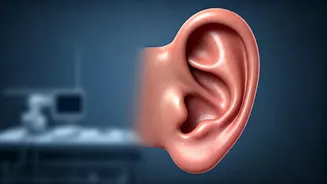Dizzy on Rising
The medical term for feeling lightheaded when you stand up is orthostatic hypotension, which literally translates to “low blood pressure when standing.”
This condition happens when your blood pressure quickly decreases as you move from lying down or sitting to standing. This leads to symptoms such as dizziness or even fainting. While not all instances of dizziness are dangerous, you should seek medical attention if the dizziness is prolonged or frequent. This includes instances of fainting or near-fainting, along with any loss of balance. Severe headaches, chest pain, and irregular heartbeats also warrant immediate medical evaluation. Understanding these factors will help you distinguish between a temporary issue and a potential health concern.
Body's Natural Response
When you stand, gravity pulls blood towards your lower body, particularly your legs and feet. Typically, your body automatically responds to this shift. The veins in your legs tighten to push blood back up to your heart. At the same time, your heart beats a little faster to maintain blood flow to vital organs, including your brain. The smaller arteries then constrict, helping keep your blood pressure steady. A delay or weakness in any of these processes can temporarily reduce blood flow to the brain, causing a feeling of dizziness or lightheadedness. These moments of wooziness are a sign that your body is having trouble adjusting to the change in position.
Everyday Management
Even mild or occasional dizziness can be managed through simple lifestyle changes and habits. Staying hydrated is key; drinking plenty of water helps stabilize blood pressure. Make sure you consistently drink water throughout the day. Avoid sudden movements when standing, and take a moment to sit on the edge of the bed or chair before getting up. When rising, clenching your leg muscles can help push blood back into circulation, lessening the chances of dizziness. Moreover, what you eat can affect your chances of getting dizzy. Eating smaller, more frequent meals can help prevent postprandial dizziness, and limiting fast-digesting carbohydrates, like white bread and sugary drinks, can also help.
Morning & Other Triggers
Morning dizziness is quite common because of several factors. Your blood volume decreases when you sleep. This results in reduced pressure within your circulatory system. Long periods of inactivity, like lying down or sitting for hours, can also reduce the responsiveness of your veins and cardiovascular system. Also, the body may take longer in the morning to adjust to standing. Dizziness can also happen after eating, a phenomenon called postprandial hypotension. During digestion, blood is directed to the stomach and intestines, temporarily lowering systemic blood pressure. Meals high in refined carbohydrates and sugars can worsen this effect.
Risk Factors Explained
Certain groups are more susceptible to experiencing dizziness upon standing. Older adults are more prone to orthostatic hypotension; up to 20% of people over 65 experience symptoms. Other medical conditions can increase the risk, including diabetes, heart disease, neurological disorders, and anemia or other blood disorders. Therefore, if you experience frequent or severe dizziness, it's essential to consult a healthcare professional. They can properly diagnose any underlying conditions and recommend personalized strategies to manage your symptoms effectively.















